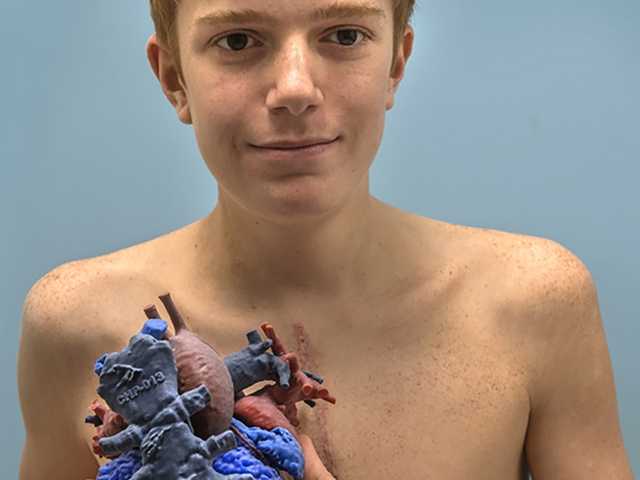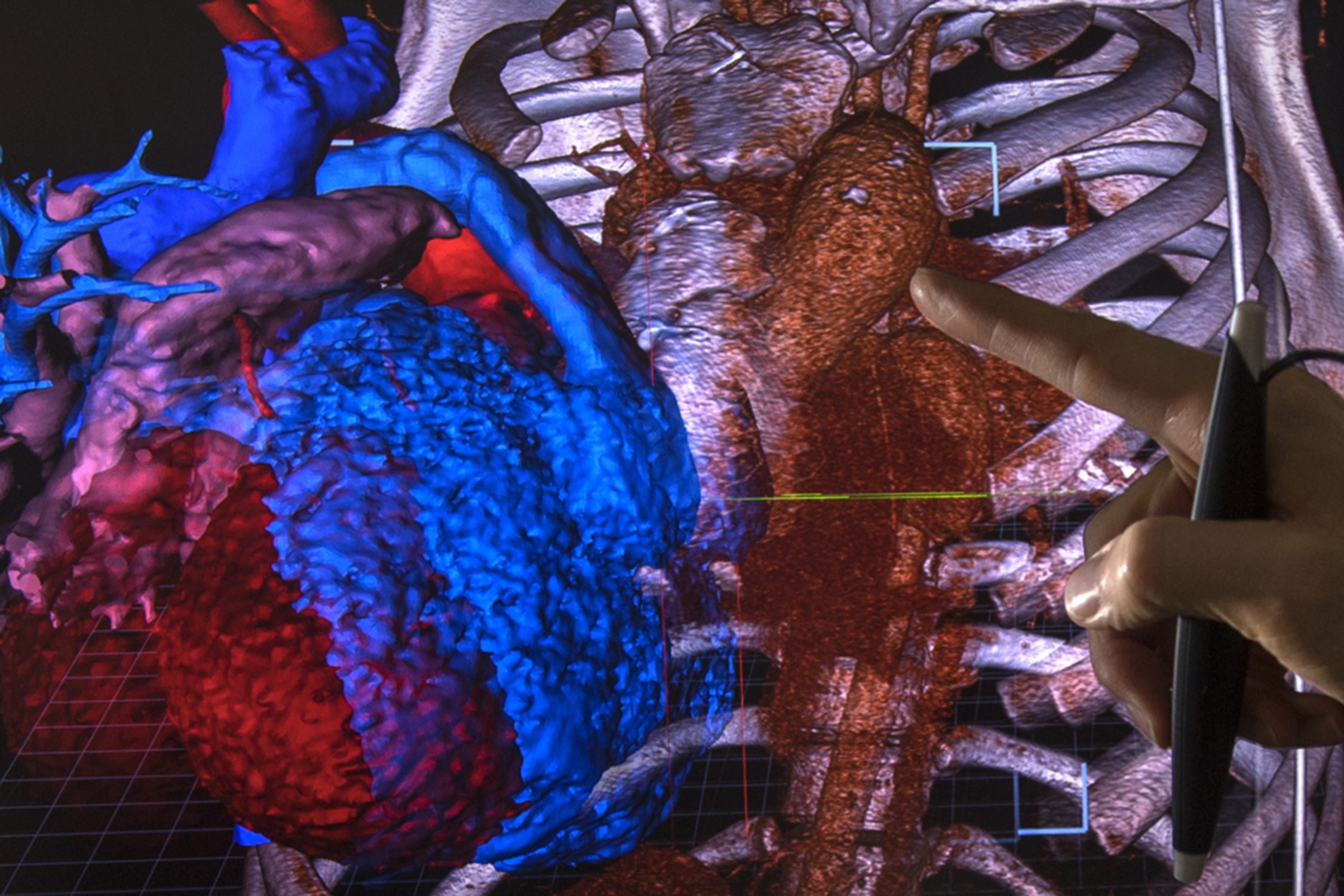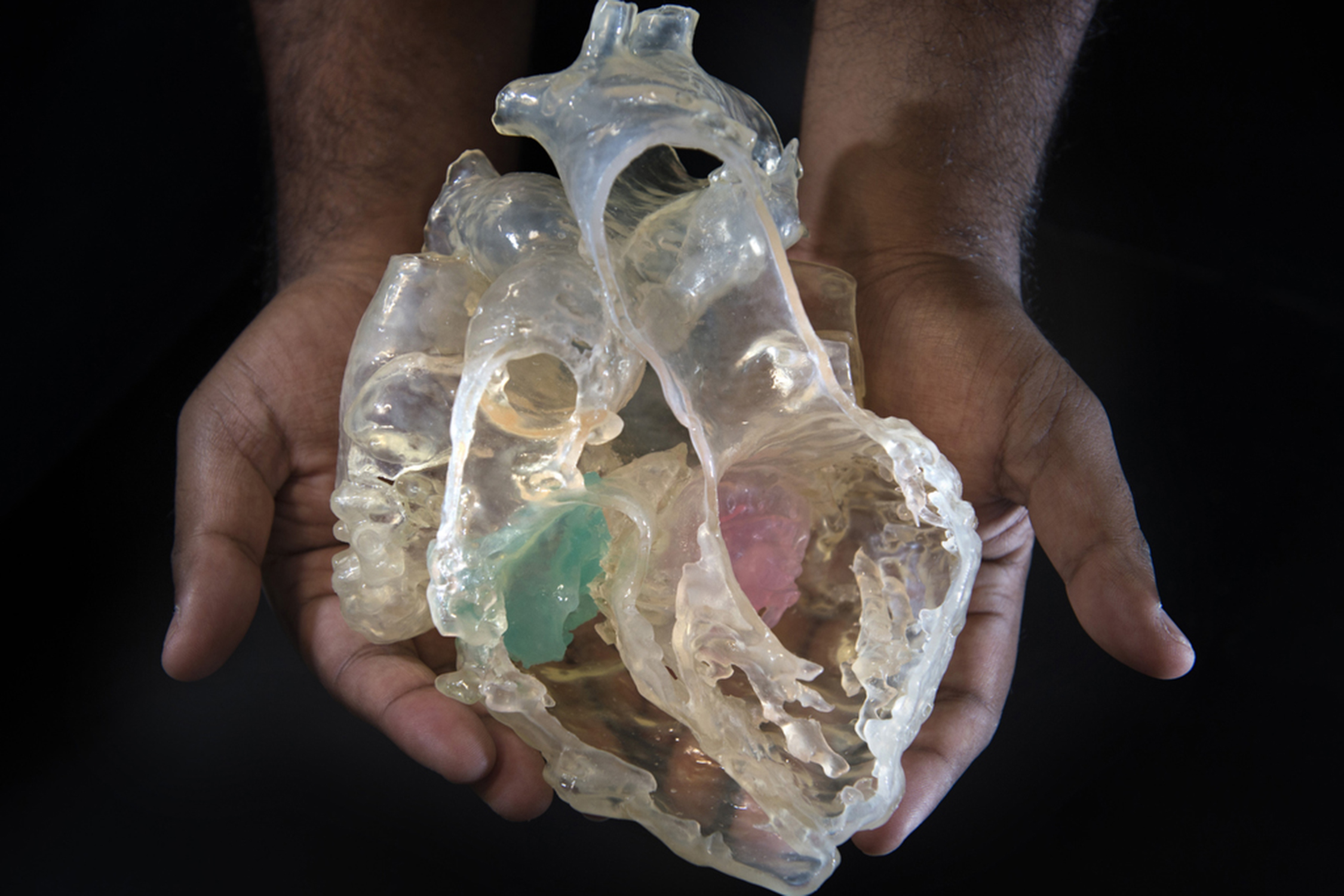Breakthroughs and advancements
Help us help patients

Research & Innovation
The Congenital Heart Center’s clinical research team strives to lead new health solutions for children and adults with congenital heart disease. Ongoing studies are evaluating advancements in diagnosis, treatment, and management of congenital heart disease, as well as implementation of new modalities of treatment and care.
Technology Innovations
Innovations play a key role in the health and well-being of children and adults with congenital heart disease. Our recent innovations have focused on developing custom devices to help patients where there are no alternative treatment options.
Advanced Imaging
Imaging is an important diagnostic and management tool in congenital heart disease. We are evaluating new imaging techniques such as 2-D and 3-D speckle tracking echocardiography, 3-D multi-planar review and tissue motion annular displacement in congenital heart disease. Additionally, we are also evaluating new imaging sequences in cardiac magnetic resonance through research in children and adults with congenital heart disease.

3-D Visualization
We are one of the world’s leading centers for three-dimensional echocardiography. Our experts were the first in the world to successfully integrate CT and three-dimensional transesophageal echocardiography to print a hybrid 3-D model of a patient’s heart. Our cardiologists and surgeons use 3-D printing technology to assist and plan for complex congenital heart surgery.
3-D Printing
We utilize 3-D printing for interventional and surgical planning in complex congenital heart cases. This improves the visualization of the heart. Our team has developed a unique method to combine multiple imaging modalities: cardiac magnetic resonance, computed tomography scans and echocardiography to create a more accurate hybrid 3-D printed model. These models are invaluable in planning procedures, but also for the education of patients and family members.

Patient Research Studies
Our basic research is focused on micro ribonucleic acid profiling, flow cytometry and creating induced pluripotent stem cells to better understand the development of congenital heart disease and various complications and co-morbidities. Our translational research is focused on advancing new therapies in congenital heart disease including development of new devices. Our clinical research is focused on evaluating the safety and efficacy of new therapies, outcomes, patient well-being and perceptions, and quality improvement initiatives.
Congenital Heart Research Education & Innovation at Spectrum Health (CHERISH)
CHERISH is a designated fund of the Spectrum Health Foundation that supports research, education and innovation initiatives for children and adults with congenital heart disease, which have resulted in several presentations at scientific meetings and publications in peer-reviewed medical journals.
